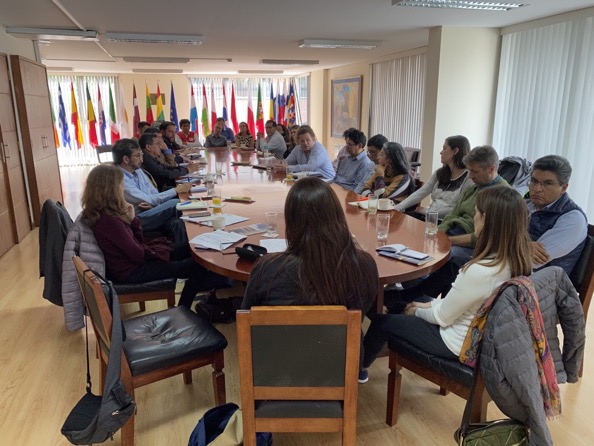Travelling for work

The Delegation of the EU to Bolivia in La Paz, January 2020
After relaxing end of 2019 and beginning of 2020, it is very busy travelling now.
A little over a week ago, I set off to travel to Quito and the Province of Bolivar in Ecuador and then continued to La Paz in Bolivia, where I am now.
The trip is work related, and that means that I am visiting various humanitarian projects. While in Ecuador, we visited various communities in the Bolivar Province, which two years ago were badly affected by the earthquake. We went there to talk to the residents of the villages and the local authorities about what could be done to prepare better for future calamities. While the conversations were very interesting, I am worried that things are not going well. There is a degree of passivity and lack of enthusiasm from people (villagers and authorities alike). The feeling I have is that people are resigned and do not believe that anything could be done to be better equipped to deal with disasters, and they just hope that things will not get that bad. I found this attitude to be very sad, as in my mind it results from lack of leadership from politicians and responsible agencies (such as civil protection services) which have responsibilities to show the solutions. There are plenty of things that can and should be done! There is technology and there is knowledge and there are resources to get things sorted out. Trouble is that there does not seem to be right people in right places to take action, despite clear needs and potential opportunities. Lots to think about to work out how to break this vicious circle.
While the impressions from the Bolivar Province were not too encouraging, I was much more impressed by the advances of the project that deals with school preparedness to disasters in Ecuador. Our conversations to the Ministry of Education and some of our partners (NGOs and UN agencies) showed how much can be achieved if there is leadership and enthusiasm! The managers of the project have clear vision on how to involve children, parents, teachers and local communities in setting up the contingency plans, and implement those in real lives. Our counterparts refuse to accept that calamities should be given into, but have accepted them and are creative on ways to minimise their negative impact when they occur, and work out ways of bringing help to everyone who may need it, when the time comes! It is amazing to see that just mere awareness spreading on how to behave, where to evacuate, etc., already makes miracles. Additional application of technology only should enhance the resilience of the people at risk!
I am now in Bolivia, and will deal with similar exercises in La Paz and Santa Cruz. I just hope that we will experience more enthusiasm than passivity here…
